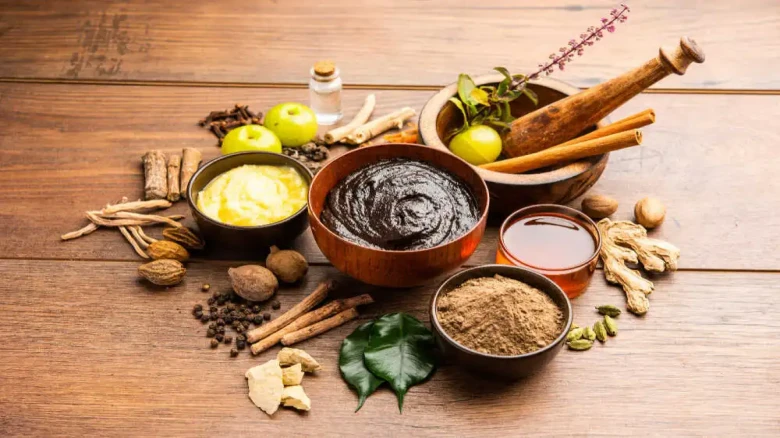Article

Ayurvedic herbs have been gaining recognition as natural remedies to help individuals with...
Digital Desk: Diabetes continues to be a major health concern worldwide, affecting millions of individuals. With the prevalence of diabetes on the rise, finding effective and complementary alternative therapies to traditional medical procedures has become essential. Ayurvedic herbs have been gaining recognition as natural remedies to help individuals with diabetes regulate their blood sugar levels and improve their overall quality of life when used in combination with a healthy lifestyle, balanced diet, and regular exercise.
The ancient Indian practice of Ayurveda, which dates back thousands of years, has long incorporated various herbs to treat various health conditions, including diabetes. Below are five Ayurvedic herbs that have shown promise in managing diabetes naturally:
1. Karela: Karela, also known as Bitter Melon, has been a staple in Ayurvedic medicine for its anti-diabetic properties. It contains a compound called polypeptide-p, which mimics the action of insulin, helping to lower blood sugar levels. Additionally, Bitter Melon aids in improving glucose utilization and stimulating insulin secretion, making it a valuable choice for diabetes management.
2. Jamun: Jamun, a popular fruit in Ayurvedic treatments, has significant hypoglycemic effects, helping to lower blood sugar levels. It contains bioactive compounds such as anthocyanins, ellagic acid, and polyphenols, which further aid in the process. Consuming Jamun or its juice can help regulate blood glucose levels, improve insulin sensitivity, and reduce the risk of diabetic complications. The high dietary fiber content in Jamun also slows down sugar absorption, promoting better glycemic control.
3. Giloy: Giloy, also known as Tinospora Cordifolia, has shown promising hypoglycemic effects by stimulating insulin secretion and improving insulin sensitivity, thus helping to regulate blood sugar levels. Additionally, its anti-inflammatory properties can reduce inflammation and enhance insulin sensitivity. The antioxidant properties of Giloy help protect pancreatic beta cells and counteract the oxidative stress associated with diabetes. Incorporating Giloy into a comprehensive diabetes management plan may provide additional support for maintaining stable blood sugar levels and promoting overall well-being.
4. Gudmar: Gudmar, also known as Gymnema Sylvestre, has gained recognition for its potential role in managing diabetes naturally. It may help control blood sugar levels by reducing glucose absorption and enhancing insulin sensitivity. Additionally, Gudmar has been associated with managing sugar cravings and supporting pancreatic health.
5. Indian Gooseberry: Indian Gooseberry, or Amla, is a potent Ayurvedic herb that offers numerous health benefits, including blood sugar regulation. Rich in vitamin C and antioxidants, Amla helps improve pancreatic function and enhance insulin secretion. Furthermore, Amla aids in reducing oxidative stress and inflammation, which are often associated with diabetes.
While Ayurvedic herbs offer promising natural support for managing diabetes, it is crucial to remember that they should be used in conjunction with medical advice and regular monitoring by healthcare professionals. These herbs should complement traditional medical treatments and not replace them entirely.
Leave A Comment